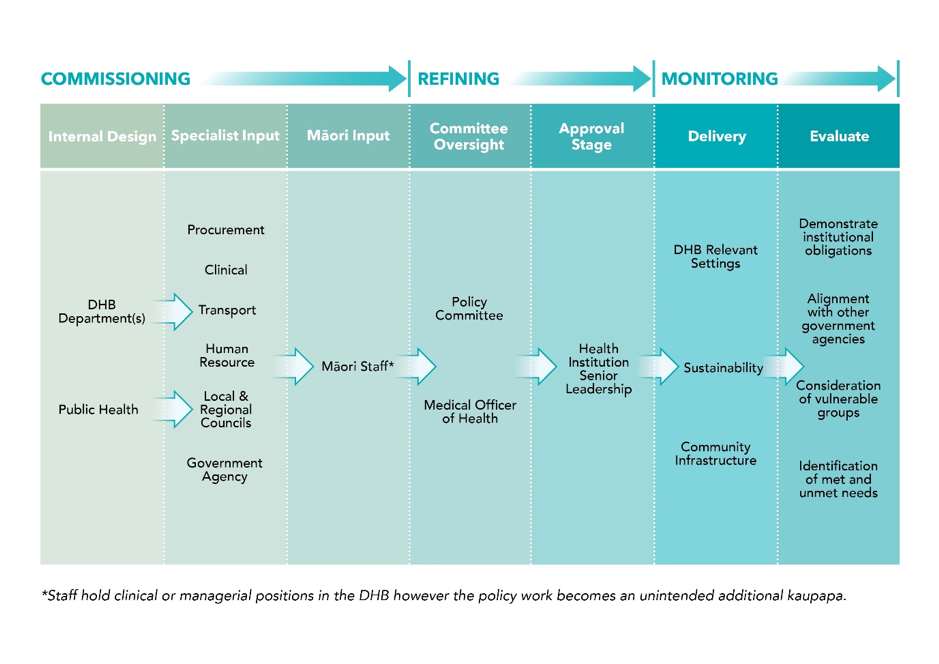ADAPTATION PLANNING
RESEARCHERS
Haumanu Hauora – a visual representation of the policy process

One of the objectives of the Haumanu Hauora: Strengthening health institution Māori responsiveness to climate change research project was to seek to understand how the most equitable and efficient means of implementing policy in a clinical setting with an implicit focus on poor health outcomes for Māori as a result of climate change.
Following in-depth interviews with tangata whenua and DHB representatives (n=27) the project elicited a thorough understanding of the current policy processes in place in DHBs, and input was sought from participants on how this could be modified to provide better outcomes for Māori and other vulnerable groups. Six stages of the policy process were identified during the interviews (Internal design, Specialist input, Māori input, Committee oversight, Approval and Deliver) and feedback on how to improve these were incorporated into the interviews. Subsequently a refined policy process was developed which is illustrated in the diagram above. The refinement includes one new stage ‘evaluation’ and the overarching focus is on three distinct Phases – Commissioning, Refining and Monitoring.
Findings from the research demonstrated early on that Māori were frequently excluded from the Commissioning stage of the process. Consequently, the project commands that Māori input is vital for improved health outcomes for Māori and other vulnerable groups. The arrows between Specialist input and Māori input in the refined diagram emphasises the need for Māori input at this Commissioning Phase.
The project learnt that once policy has been drafted, the policy will pass through the Policy Committee and the Medical Officer of Health before being approved by Senior Leadership. This phase of the process has been named the Refining Phase in this refined diagram and this bode well with participants.
The project named the final phase the Monitoring Phase. During this Phase the project identified that there were several ways of monitoring the delivery of policy. This occurs within the Health Institution, ensuring the sustainability of the policy and eliciting how the policy may interact with community infrastructure.
Finally, any robust policy process must include an evaluation stage. During the interviews it was apparent that this is not ‘business as usual’ practice in our DHB settings, therefore our refined model includes an evaluation stage. Interview participants were very clear about the expectations and outcomes of an effective policy from a te ao Māori perspective which included a substantial list of obligations to fulfil at this stage to remain true to the intention of this research.
An additional visual was prepared to demonstrate the need for this process to be iterative and effective.

These visual representations are two (of numerous) findings from the cumulation of 24 months of research, listening to the voices of those not only at the forefront of policy development but also the recipients(and unintended recipients) of policy. We do hope that our refined policy process can be incorporated into future decisions around policy – in particular climate change policy in the new Health Institution framework in Aotearoa New Zealand.